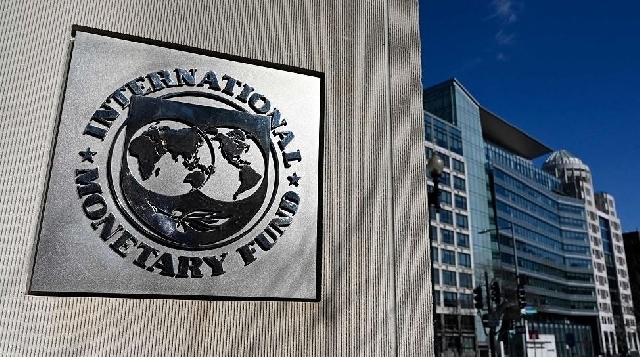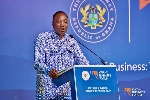IMF forecasts economic growth in sub-saharan Africa, warns of debt repayment struggles
 The IMF's projections paint a picture of economic growth in Sub-Saharan Africa, with expectations of a rise from 3.4per cent in 2023 to 3.8 per cent in 2024
The IMF's projections paint a picture of economic growth in Sub-Saharan Africa, with expectations of a rise from 3.4per cent in 2023 to 3.8 per cent in 2024
The International Monetary Fund (IMF) has unveiled its April 2024 Regional Economic Outlook for Sub-Saharan Africa, heralding a gradual improvement in economic activity across the region while sounding alarms over looming debt repayment challenges.
The IMF's projections paint a picture of economic growth in Sub-Saharan Africa, with expectations of a rise from 3.4per cent in 2023 to 3.8 per cent in 2024. Further recovery is anticipated beyond this year, with growth projected to reach 4.0 per cent in 2025.
Despite this positive trajectory, governments in Africa face a myriad of challenges, including financing shortages, high borrowing costs, and risks associated with debt rollover. The report notably highlights the imminent external debt repayments, with USD5.9 billion in Eurobonds due in 2024 and an additional USD6.2 billion in 2025. These impending repayments pose significant challenges, particularly for countries like Kenya, Nigeria, and South Africa.
While Kenya has taken measures to alleviate some of the pressure by accessing the markets, Nigeria and South Africa are contemplating issuing Eurobonds to manage their debt obligations.
The IMF Division Chief of the African Department, Luc Eyraud remarked: “It’s mostly concentrated in three countries: Kenya, Nigeria, and South Africa. Kenya has re-accessed the markets, so it’s moved a little bit of pressure when you have to face debt repayments. Nigeria is also considering a Eurobond. South Africa is a bit of a different case because they have a very large domestic market, so their liquidity problems in terms of debt repayments are less severe than in other countries.”
The IMF Deputy Director of the African Department, Catherine Pattillo emphasised the need for improvements in the G20 Common Framework, especially in international debt negotiations. She highlighted the IMF's initiatives in organizing global sovereign debt roundtables, facilitating dialogue between various countries and creditors from both the public and private sectors.
Source: classfmonline.com
Trending Business

Tema port delays threaten livelihoods as importers battle mounting demurrage costs
12:17
President Mahama launches major youth employment initiatives: Adwumawura and National Apprenticeship programme
11:25
IMF boss applauds Ghana’s economic turnaround under Mahama administration
03:35
NIB MD champions community-led development at Kwahu Business Forum
03:14
Angel Group CEO engages Free Zones Authority on strategic expansion plans
03:52
President Mahama swears in Matilda Asante-Asiedu as Second Deputy Governor of Bank of Ghana
02:58
Minister of Energy and Finance engage Karpower on legacy debt
17:21
CEMSE urges PUWU to support private sector involvement in ECG revenue mobilisation
14:19
COCOBOD halts Cocoa roads projects over GH¢4 billion debt – CEO
10:09
Free Zones Authority CEO visits Blue Skies juice factory in Dobro-Nsawam
03:57



